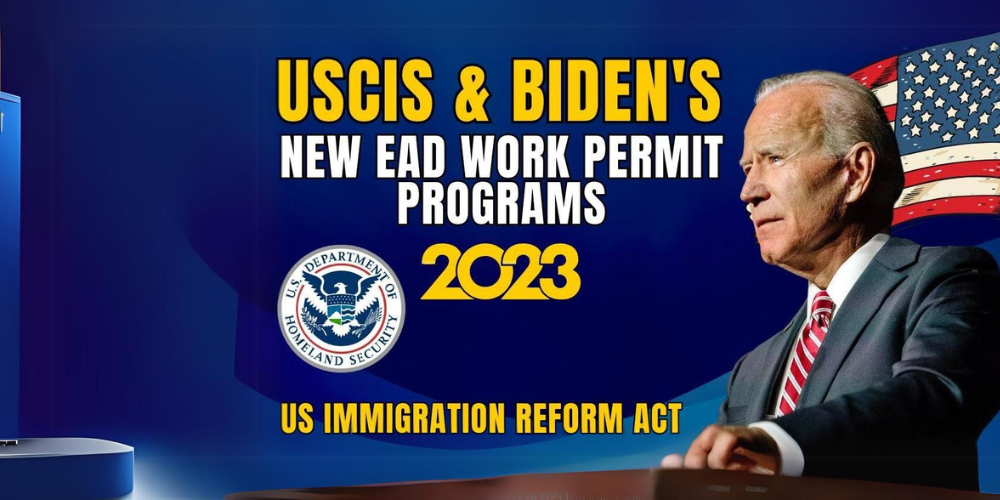Schedule an Appointment with Our Attorneys Now
By Ozlem Kara, Content Editor at CK Law Firm
On August 27, 2024, the U.S. Department of State (DOS) announced that all available visas for fiscal year (FY) 2024 under the employment-based first preference (EB-1) and fourth preference (EB-4) categories have been allocated. Earlier, on August 16, 2024, DOS confirmed that all visas in the EB-3, EW (Other Workers), and unreserved EB-5 categories had also been issued.
For the EB-1 category, DOS explained that “fully utilizing these visas supports legitimate travel for individuals with extraordinary abilities, nationally or internationally acclaimed professionals, as well as distinguished professors, researchers, and high-level executives and managers from multinational corporations.” In reference to the EB-4 category, DOS highlighted that maximizing the visa allocation “aids in facilitating travel for a diverse group of special immigrants, including religious workers, special immigrant juveniles, certain U.S. government employees, retirees of international organizations, and international broadcasting personnel, among others.”
The visa limits will reset with the start of the new federal fiscal year on October 1, 2024. After this date, U.S. embassies and consulates will be able to continue issuing immigrant visas to eligible applicants in these categories. Additionally, USCIS will also resume processing and approving Adjustment of Status applications (Form I-485) for qualified applicants beginning on October 1, 2024.
By Gulce Suzen, Law Clerk at CK Law Firm
Starting September 13, 2024, the U.S. Citizenship and Immigration Services (USCIS) has implemented a new requirement for affirmative asylum applicants. All applicants must now provide their own interpreters for asylum interviews. This change aims to streamline the interview process and ensure that communication is clear and effective.
Previously, USCIS provided interpreters for asylum interviews, but the new policy shifts this responsibility to the applicants. This means that anyone applying for asylum must bring an interpreter who is fluent in both English and the applicant’s native language. The interpreter must be at least 18 years old and not be the applicant’s attorney or representative.
This change has significant implications for asylum seekers. On one hand, it ensures that applicants can choose someone they trust and feel comfortable with to interpret during this critical interview. On the other hand, it places an additional responsibility on applicants to find and secure a qualified interpreter.
For many asylum seekers, finding a reliable interpreter can be challenging and may incur additional costs. It is essential for applicants to plan ahead and ensure that their interpreter meets USCIS requirements to avoid any delays or issues during the interview process.
USCIS emphasizes that this new policy is intended to improve the efficiency and accuracy of the asylum interview process. Clear communication is vital for asylum officers to make informed decisions on each case, and having an interpreter chosen by the applicant can enhance understanding and reduce misunderstandings.
For more details on this new requirement, you can refer to the official announcement by USCIS.
This policy update highlights the importance of preparation for asylum seekers. Ensuring that you have a qualified interpreter ready for your interview can make a significant difference in the outcome of your asylum application. If you need assistance finding an interpreter or understanding this new requirement, please contact CK Law Firm for support and guidance.
By Sevvalnur Akgun, Case Manager at CK Law Firm
The U.S. Citizenship and Immigration Services (USCIS) has announced a new policy that will significantly impact immigrants navigating the legal system. Effective immediately, USCIS will provide certain documents to individuals after decisions are made by an Immigration Judge or the Board of Immigration Appeals (BIA). This new policy aims to ensure that immigrants have timely access to crucial documents related to their cases.
Under this policy, USCIS will issue documents such as updated Notices to Appear (NTA), which are critical for immigrants to understand their legal status and next steps. This change is designed to improve transparency and communication between USCIS and individuals involved in immigration proceedings.
For immigrants, having immediate access to these documents can make a significant difference in their ability to respond appropriately to legal decisions. It ensures that they are fully informed of their status and any actions they need to take. This can be particularly important for those facing deadlines or needing to provide documentation for other legal or personal matters.
Previously, there could be delays in receiving such documents, causing uncertainty and potential complications for individuals trying to navigate the immigration system. The new policy is expected to alleviate these issues by providing documents promptly after decisions are made.
USCIS has stated that this policy change is part of their ongoing efforts to enhance customer service and ensure that individuals are well-informed about their immigration cases. For more details on this new requirement, you can refer to the official announcement by USCIS.
This update underscores the importance of staying informed about your immigration status and any changes that may affect your case. If you need assistance understanding this new policy or how it impacts you, please contact CK Law Firm for support and guidance.
By Sevvalnur Akgun, Case Manager at CK Law Firm
Stay informed with the latest updates in US immigration policies and procedures. Here’s a roundup of this week’s key developments.
1. Expansion of DACA Protections: The Biden administration has broadened protections under the Deferred Action for Childhood Arrivals (DACA) program, aiming to provide more stability for undocumented immigrants brought to the US as children.
2. Changes in Visa Processing Times: New measures by the Department of State aim to reduce visa processing times. Applicants should check the latest guidelines for timely submissions.
3. Increase in Refugee Admissions: The US has increased its refugee admissions cap for the coming year, reflecting a commitment to providing asylum to more individuals fleeing persecution and conflict.
4. Updates to Work Visa Programs: Adjustments to the H-1B and H-2B visa programs focus on streamlining application processes and addressing labor market needs.
5. Immigration Enforcement Priorities: New enforcement priorities emphasize deporting individuals with criminal records and those posing national security threats.
Conclusion: Stay tuned for more updates as the US continues to adapt its immigration policies to address current challenges and opportunities. For detailed information, visit Boundless Weekly Immigration News.
By Ozlem Kara, Content Editor at CK Law Firm
According to official government data, President Biden’s decision to restrict asylum claims at the southern border has led to a significant decrease in the number of migrants released into the interior of the United States. This policy was implemented as part of measures aimed at reducing illegal border crossings in the U.S.
Impact of the New Immigration Policies
In June, President Biden made substantial changes to the immigration system by issuing several executive orders that restricted the right of most migrants to seek asylum in the U.S. These steps resulted in a noticeable decline in the number of migrants crossing the U.S.-Mexico border illegally. In July, the number of migrants apprehended outside official entry points at the southern border dropped to 56,400, the lowest level in nearly four years. Experts attribute this decrease to the hot summer months and Mexico’s crackdown on migrants heading north.
Decrease in Migrant Releases
One of the most notable outcomes of these new policies has been the significant reduction in the number of migrants released by the U.S. Border Patrol. In July, the Border Patrol released far fewer migrants with court notices compared to previous months. For example, in May, this number was 62,000, but it dropped to 12,000 in July.
These strict measures have also increased the rate at which migrants are subjected to expedited removal procedures. In July, 50% of apprehended migrants underwent these procedures, marking a significant increase from previous months.
Restricted Access to Asylum Rights
Under U.S. law, asylum is offered to provide legal protection to foreign nationals fleeing persecution for specific reasons. However, changes in President Biden’s asylum policies have severely restricted migrants’ access to this right. Since June, there has been a substantial decrease in the number of migrants screened by asylum officers. Additionally, new rules have made it more difficult for migrants to express their fear of harm, increasing the risk of asylum claims being denied.
Future Outlook
The Biden administration anticipates that if these policies continue to be enforced, the decline in illegal border crossings will persist. However, there is a risk that these policies could be overturned in federal courts. Immigrant rights advocates, in particular, argue that Biden’s policies have negative consequences for migrants.
For more details, visit the CBS News website.
At CK Law Firm, we closely monitor current developments in U.S. immigration law and continue to provide our clients with the most accurate information. Contact us for more information on asylum claims and other immigration processes.
By Sevvalnur Akgun, Case Manager at CK Law Firm
The U.S. Citizenship and Immigration Services (USCIS) has made a significant change to help refugees build a better life in the United States. By streamlining the process for obtaining Employment Authorization Documents (EAD), USCIS aims to make it easier and faster for refugees to start working and supporting themselves.
Under the new policy, refugees will have their work permits automatically renewed. This means refugees no longer need to worry about the often complicated and time-consuming renewal process. Instead, they can focus on finding jobs, building their careers, and providing for their families.
This change is more than just a bureaucratic adjustment; it’s a lifeline for many refugees. By reducing the paperwork and waiting times, USCIS is helping refugees integrate more quickly into their new communities. This allows them to gain financial independence sooner, which is crucial for their stability and well-being.
The new process also benefits employers who are eager to hire refugees but are often deterred by the red tape involved in employment authorization. With automatic renewals, hiring refugees becomes a more straightforward and attractive option for businesses.
According to USCIS, this change is designed to increase refugees’ participation in the workforce, thereby contributing to the economy and enhancing their own quality of life. For more details, you can refer to the official announcement by USCIS.
Overall, this policy update is a significant step towards helping refugees achieve self-sufficiency and stability in the United States. It reflects a commitment to making the transition to a new life as smooth as possible, allowing refugees to focus on building a brighter future.
Subscribe to Our Newsletter
Subscribe to our newsletter to stay informed about the latest announcements and articles written by our attorneys on U.S. immigration processes.
Aout Us
Our experienced lawyers at CK Law Firm offer effective solutions for those who want to make new beginnings in the USA. We facilitate and accelerate your immigration process by providing consultancy on all visa types.
Our Services
Visas
Business Green Card
Family Green Card
US Citizenship
Talent and Performance Visas
Work Visas
Investor and Trader Visas
Contact Us
+1 (972) 363- 96 89
info@cklawfirm.org
Address
2800 Regal Rd #102, Plano, TX 75075

All Rights Reserved by CK Law Firm.







